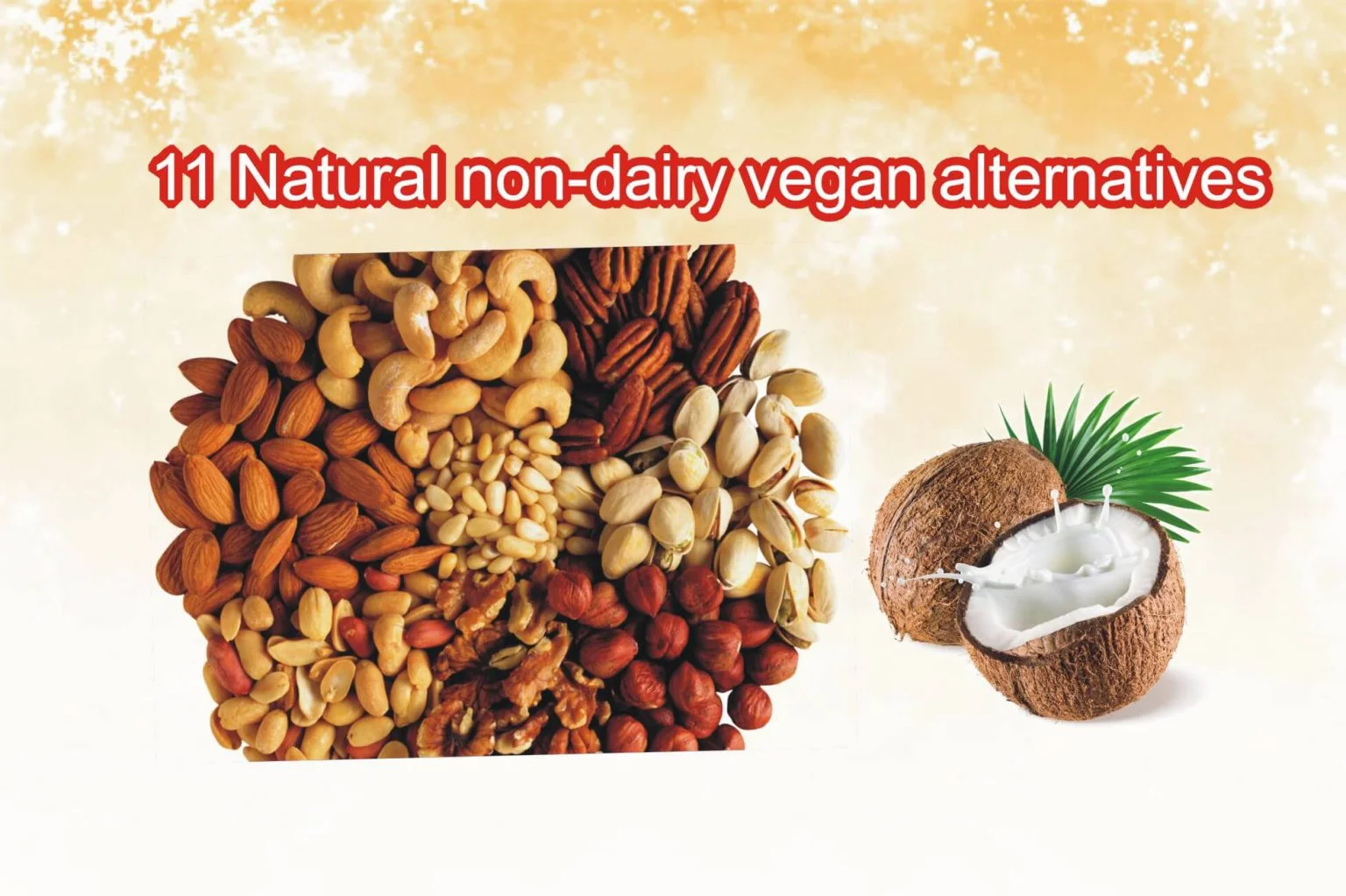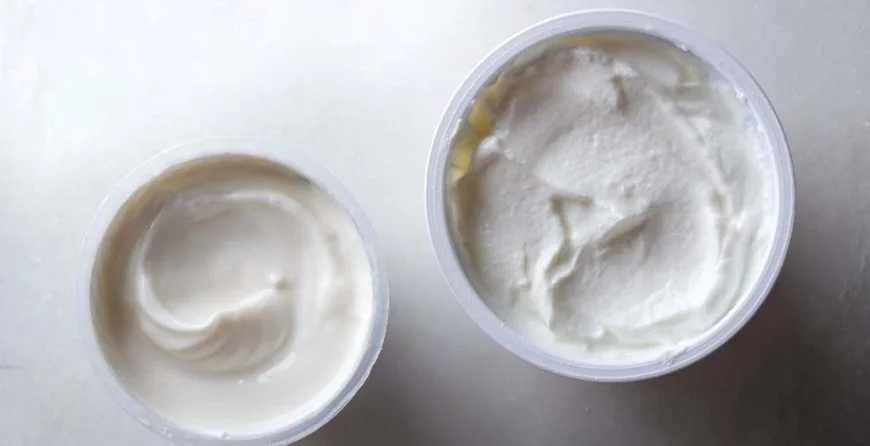11 Natural Non-Dairy Vegan Alternatives:
Non-dairy alternatives have been consumed for centuries in various cultures especially vegan people. You are really surprised why do vegan use non dairy alternative? Because they are lactose intolerant or allergic to dairy products. But there are variety of reasons such as nutritional value, animal welfare, lower environmental impact or simply out of preference etc for which people other than vegan also choose non-dairy alternatives.

But it is not bad to choose plant based non-dairy alternative
They are also nutritious or often tasty:
1. Soy milk:
Soy milk is a type of milk which is made by soaking and blending the soy beans and straining out the leftover pulp before consuming. It is nutritionally similar to dairy milk. A one cup of soy milk made with 8g soybeans contains 80 calories. It is filled with antioxidants, fiber and polyunsaturated fatty acids etc.
2. Pea Milk:
Pea milk is made from isolated pea protein, water & other emulsifiers like sunflower oil, algal oil & guar gums etc. Its consistency is similar to soy means creamy like with slightly less nutty taste. It provides 70 calories per cup. The use of algal oil provides DHA (Dihydroxy acetone phosphate). DHA is an omega-3 fatty acid which is good for immunity, heart health & also cognition. The unsweetened pea milk is loaded with 8g of protein.
3. Coconut Milk:
Coconut milk is made from water & coconut cream. It contains high amount of saturated fats & lower in carbs than grain-based milk. A one cup(240g) of coconut milk contains 51g of saturated fat and 13g. Its creamy consistency boost satiety, helps in weight loss & good for heart health.
4. Oat Milk:
Oat milk is made from oatmeal, rapeseed oil, iodized salt & vitamins(vitamin B2 & vitamin B12). Oat milk is low in protein than non fat cow’s milk. One cup contains 2-4g of protein than cow’s milk which contains 8g. It has slightly more calories. The vitamin B found in it lowers the cholesterol & improve bone strength. Oat milk also low in allergens and irritants.
5. Almond Milk:
Almond milk is made by combining almonds, water, emulsifiers & fortifying together. A one cup of almond milk contains about 35-90 calories, 1g of protein and 2.5g of fat. It doesn’t rich in calories which doesn’t either raise sugar levels but also reduce risks of heart diseases. It also contains 450mg of calcium which is 45% of the daily value, which strengthens the bones.
6. Cashew Milk:
Cashew milk production method is similar to almond milk. A one cup contains 40-50 calories. It also has minerals in it such as zinc, copper & magnesium which boost up immune system. It is good for eye health, fight against cancer, aids in blood clotting & also revitalize the skin.
7. Peanut Milk:
Peanuts has a same nutrition profile like other tree nuts . The best thing about peanut milk is that it is cost effective an also higher in protein. It also has vitamin B6 & E, unsaturated fats along with magnesium. It is also highly nutritious.
8. Flax Milk:
Flax milk is made by combining water, flax seed oil and pea protein. A cup of flax milk contains 70 calories. There is more to know about. It contains alpha-linoleic acid which boost up immune system and also reduce risk of heart disease.
9. Hemp Milk:
Hemp milk is made by combining with seeds and water. A cup of hemp milk contains about 60 calories, 3g of protein and little amount of fiber. It has ultra-nutty flavor which is sometimes taste bitter for some people. It also loaded with magnesium, calcium, vitamin D and Omega 3 or 6 fatty acids. The fatty acids found in hemp milk good for mental health and also has anti-inflammatory properties.
10. Rice Milk:
Rice milk is made by blending rice water, having mild flavor. It often low in calories than other non-dairy alternatives. It contains no protein and often fortified with 330 m of calcium which strengthen your bones. It has less allergens which is better for milk allergic patients.
11. Walnut Milk:
Walnut milk is contain 120 calories, 3g protein and omega 3’s. It is rich in antioxidants, low in carbs and a good source of fiber.
Source:
https://www.goodhousekeeping.com/health/diet-nutrition/g27128821/best-milk-alternative-substitutes/




